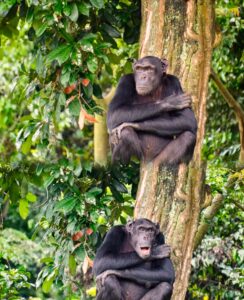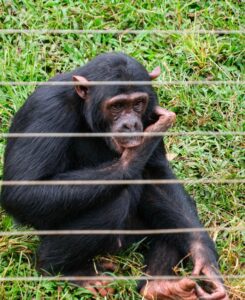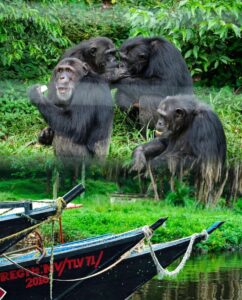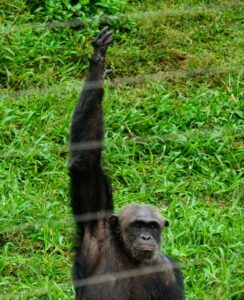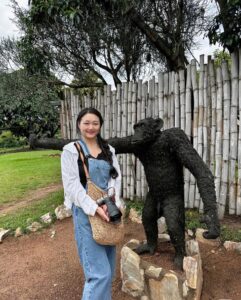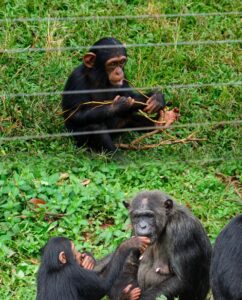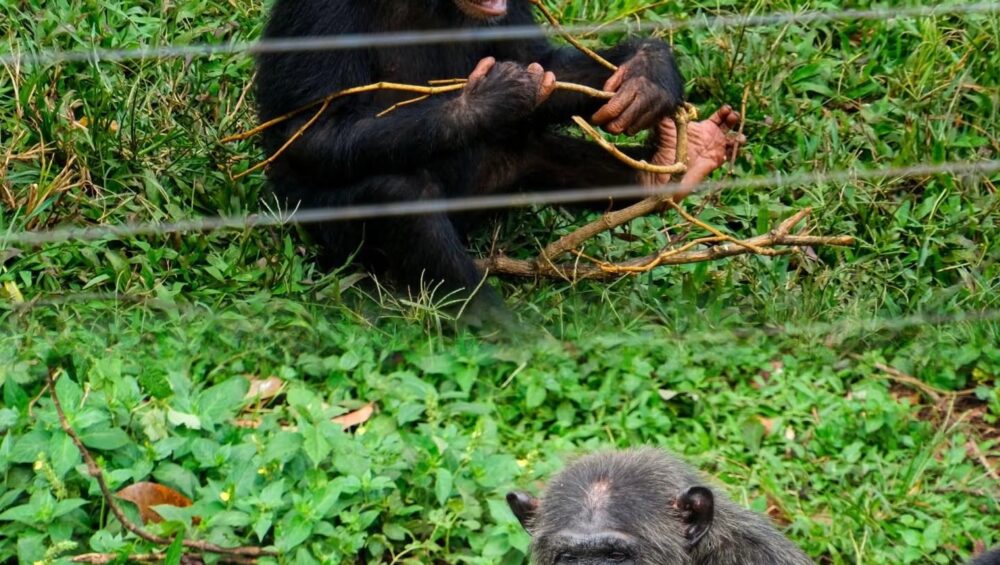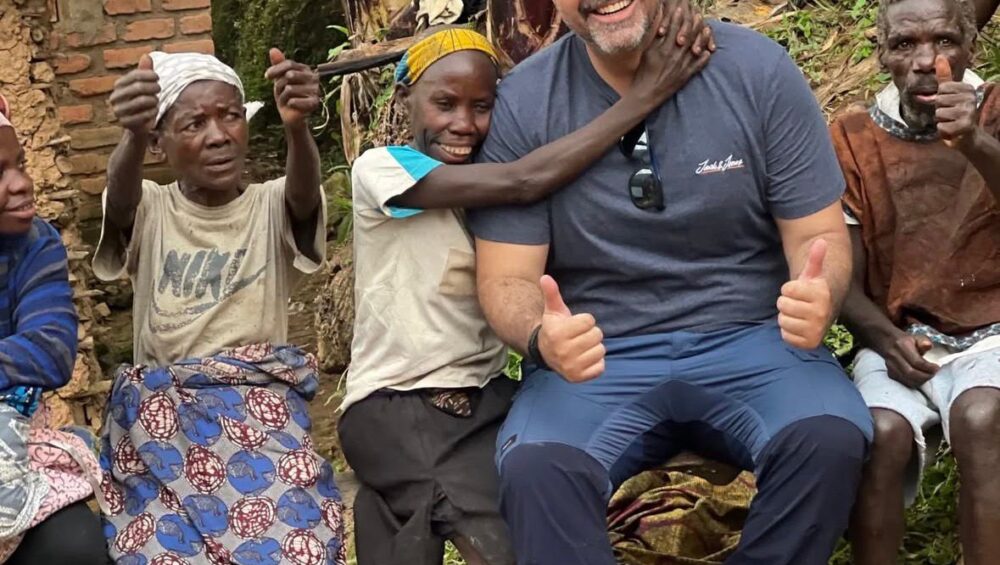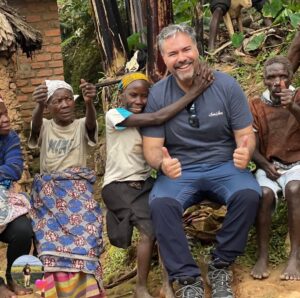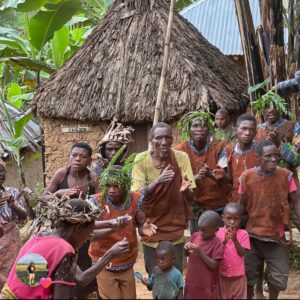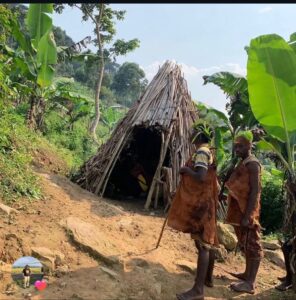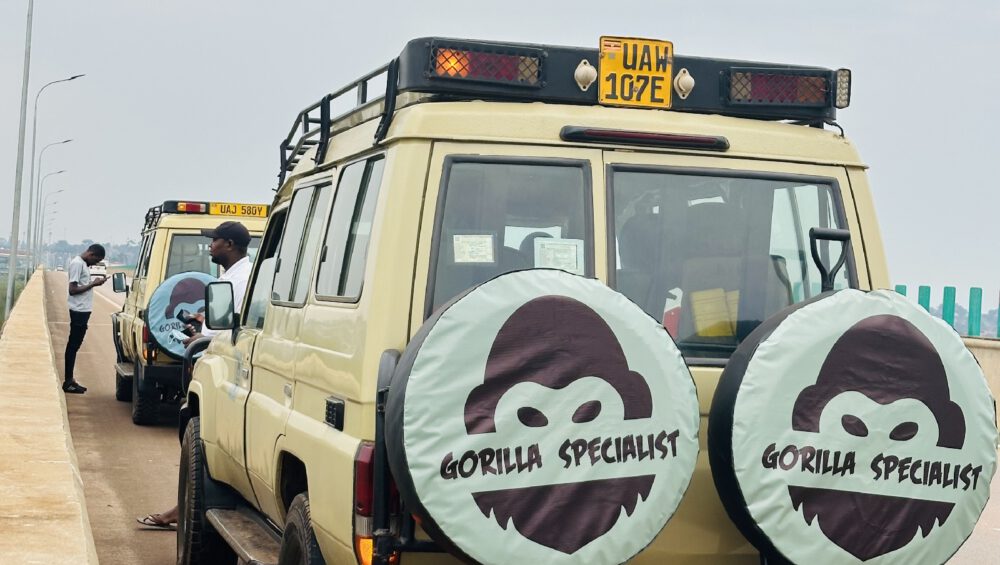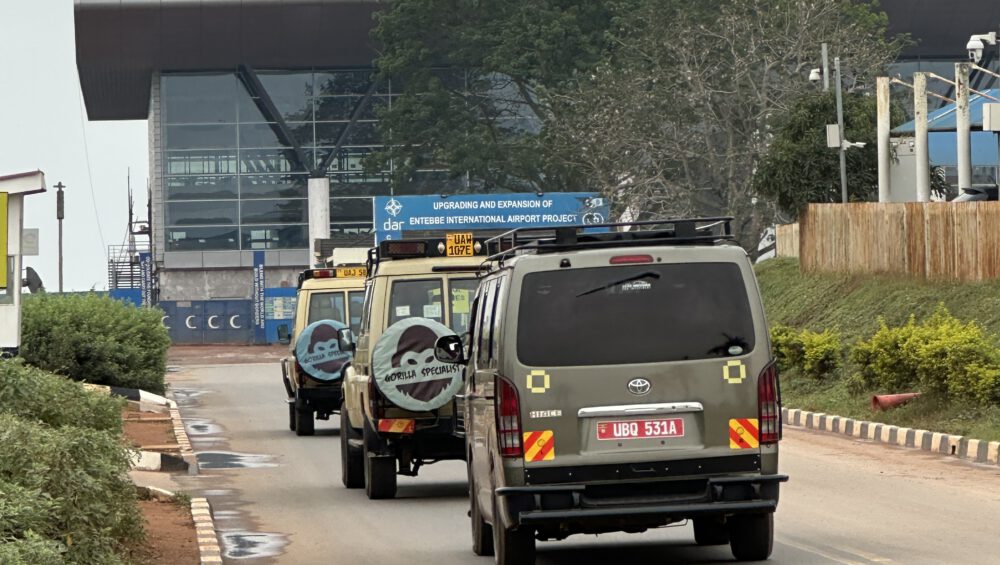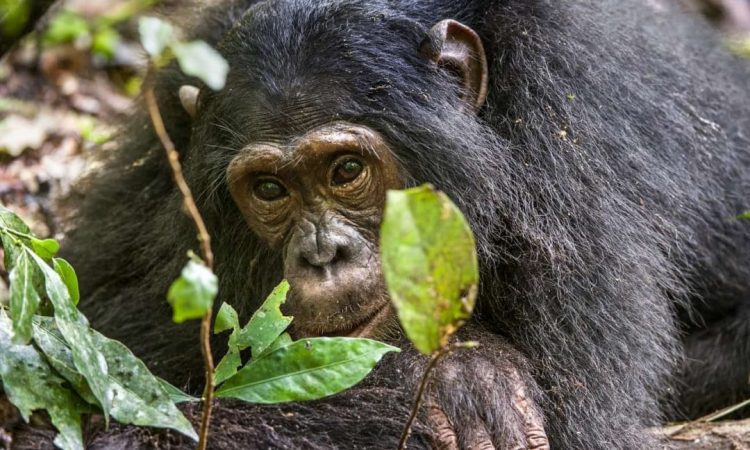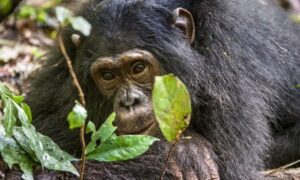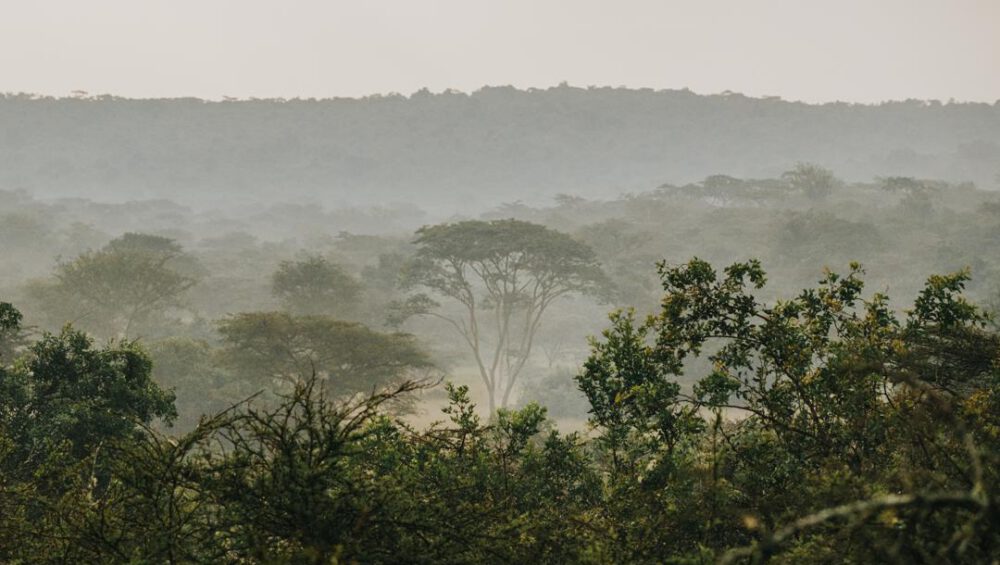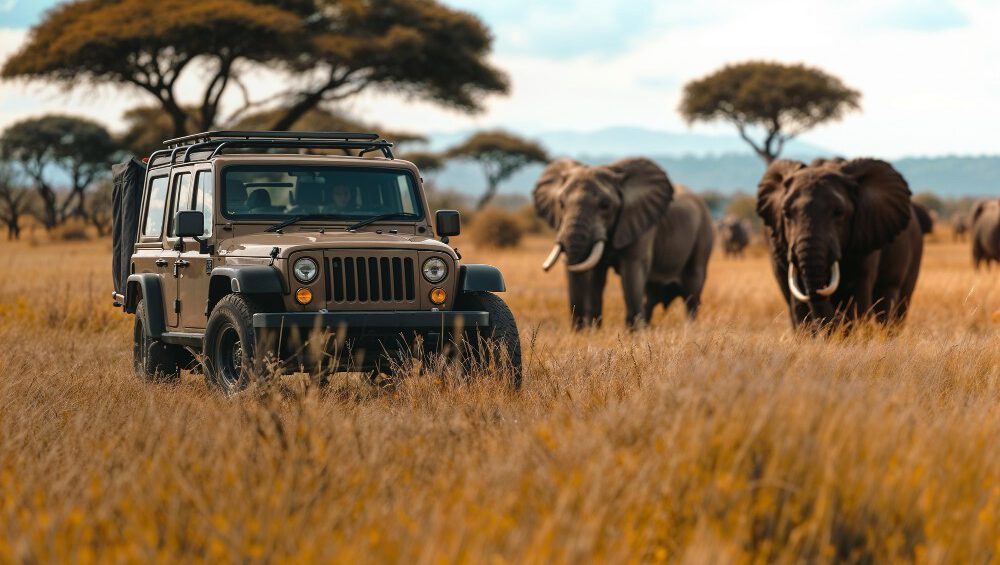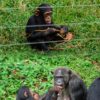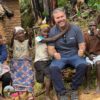Uganda Safari Essentials & Packing Guide
Planning your trip and wondering what to pack for a Uganda safari? This detailed packing guide helps you prepare for gorilla trekking, wildlife viewing, and cultural tours across Uganda. From lightweight clothing and waterproof boots to travel documents, insect repellent, and essential gear, this overview highlights everything you need for a safe, comfortable, and enjoyable safari experience. Whether you’re exploring Bwindi, Queen Elizabeth, or Murchison Falls, this guide ensures you pack smart and travel confidently.
1. Essential Safari Clothing
These protect your arms from insects, sunburn, and thorny bushes during forest walks. They also help regulate heat and keep you cool in warm weather. Neutral colours don’t attract bugs.
✓ Quick-Dry Safari Trousers
They dry fast after rain and are perfect for humid environments. They also protect your legs from stinging plants and insects. Convertible trousers can switch from long to short.
✓ Neutral-Coloured T-Shirts
Colours like khaki, olive, and grey blend into the environment, making wildlife less startled. Bright colours attract insects and can affect animal behavior.
✓ Warm Fleece or Sweater
Nights and mornings in Uganda’s highlands, like Bwindi or Kibale, are cold. A warm layer keeps you comfortable during early game drives and treks.
✓ Waterproof Rain Jacket
Uganda’s tropical climate means rain can fall anytime, especially in forests. A good jacket keeps you dry, warm, and protected during gorilla trekking.
✓ Comfortable Hiking Boots
Sturdy boots with ankle support prevent slips on muddy or steep ground. They also protect your feet from roots, rocks, and insects.
✓ Sandals or Lightweight Shoes
Ideal for relaxing at the lodge after a long day of trekking. They allow your feet to breathe and rest.
✓ Hat or Cap
A wide-brim hat protects your neck and face from the strong equatorial sun. This reduces dehydration and sunburn during game drives.
✓ Gloves (Especially for Trekking)
Useful when holding onto branches, vines, and wet surfaces. They prevent cuts and help with grip on slippery ground.
2. What to Pack for Gorilla Trekking
✓ Gardening Gloves
They protect your hands when grabbing vegetation for support. They also prevent scratches from thorns and stinging nettles.
✓ Waterproof Hiking Boots
The rainforest floor is muddy and uneven. Waterproof boots keep your feet dry and offer better grip, helping you trek comfortably for hours.
✓ Long Trekking Trousers
Essential for avoiding insect bites and scratches from bushes. They also shield your legs from muddy splashes.
✓ Gaiters or Long Socks
Safari ants can climb your legs quickly; gaiters help prevent this. They also keep mud and stones out of your boots.
✓ Waterproof Backpack (20–30L)
Carries your water, camera, snacks, documents, and rain gear. Waterproof material protects your items from sudden rain.
✓ Poncho or Rain Jacket
Sudden rain showers are common in gorilla habitats. A poncho keeps your entire body and backpack dry.
✓ Energy Snacks & Water Bottle
Trekking can take 2–6 hours depending on gorilla movement. Snacks help maintain energy, and water keeps you hydrated.
✓ Small First Aid Kit
Useful for handling minor injuries, blisters, or headaches. Essential when trekking in remote forest areas.
✓ Walking Stick
Helps with balance on steep or muddy terrain. Rangers often provide them, but you may bring your own for extra comfort.
3. Personal Travel Documents
✓ Uganda Visa
Required for most international visitors. You can apply online before arrival to avoid delays.
✓ Passport
Must be valid for at least 6 months beyond travel dates. Keep it in a waterproof pouch during outdoor activities.
✓ Gorilla & Chimp Permits
These secure your trekking spots in Bwindi/Kibale. You cannot trek without them, so keep them safe.
✓ Yellow Fever Vaccination Card
This is mandatory for entry into Uganda. Immigration officers will ask for it upon arrival.
✓ Travel Insurance
Important for medical emergencies, evacuation, or lost luggage. Trekking involves physical activity, so coverage is essential.
✓ Copies of All Documents
In case originals get lost, having digital or printed copies speeds up replacement.
4. Toiletries & Personal Care
✓ Sunscreen (SPF 30+)
The equatorial sun is intense even on cloudy days. Sunscreen prevents sunburn and dehydration.
✓ Biodegradable Soap & Shampoo
Eco-friendly products help protect Uganda’s natural ecosystems. Many lodges encourage using such products.
✓ Insect Repellent
Helps protect you from mosquitoes and other biting insects. DEET or Picaridin-based repellents work best.
✓ Wet Wipes & Tissues
Useful for freshening up during long drives or hikes. Some parks have limited bathroom facilities.
✓ Hand Sanitizer
Keeps your hands clean when water isn’t available. Ideal for picnics or roadside stops.
✓ Lip Balm with SPF
Prevents dry, cracked lips caused by sun and altitude.
5. Health & First Aid Items
✓ Anti-Malarial Tablets
Uganda is a malaria-prone area, so preventive medication is strongly recommended. Combine with repellent and mosquito nets.
✓ Prescription Medicines
Bring enough for your entire trip, as pharmacies may not have specific brands. Keep them in original packaging.
✓ Painkillers
Useful for body aches from long travel days or trekking. Ibuprofen or paracetamol works best.
✓ Anti-Diarrheal Medication
Good for sudden stomach upsets due to new foods or water changes. Helps you stay comfortable during travel.
✓ Rehydration Salts
Trekking and sunshine can cause dehydration. These salts restore lost minerals quickly.
✓ Band-Aids & Blister Pads
Prevent discomfort during hikes. Especially helpful if boots are new or terrain is rough.
✓ Motion Sickness Tablets
Some roads to national parks are winding and bumpy. Tablets help you enjoy the journey without discomfort.
6. Safari Electronics
✓ Camera
Captures memorable moments from your safari. Wildlife encounters can be quick, so a reliable camera helps.
✓ Extra Batteries
Some lodges have limited electricity hours. Extra batteries ensure you never miss a shot.
✓ Memory Cards
Wildlife photography uses a lot of storage. Carry multiple cards to avoid running out of space.
✓ Binoculars
Helpful for spotting animals and birds in distant areas. A 10×42 pair is ideal for safaris.
✓ Power Bank
Useful for charging devices during long days away from the lodge. Essential if you take many photos.
✓ Universal Adapter
Uganda uses UK-style plugs (Type G). A universal adapter ensures all your devices charge easily.
✓ Headlamp or Flashlight
Some lodges dim lights at night. A headlamp is great for walking to your room safely.
7. Photography Gear (Optional)
✓ Telephoto Lens (100–400mm)
Perfect for capturing distant wildlife clearly. It brings animals closer without disturbing them.
✓ Wide-Angle Lens
Ideal for landscapes, crater lakes, and close-up lodge photography. Makes scenery look more dramatic.
✓ Lens Cleaning Kit
Safari environments can be dusty or humid. A kit keeps your photos clear and your gear protected.
✓ Waterproof Lens Cover
Essential for gorilla trekking where rain is common. Keeps expensive gear safe from water damage.
✓ Photography Bean Bag
Helps stabilize your camera inside the safari vehicle. More convenient than a tripod on game drives.
8. Optional Useful Items
✓ Safari Duffel Bag
Lightweight, flexible, and airline-friendly. Easier to pack into safari vehicles than hard suitcases.
✓ Waterproof Phone Pouch
Protects your phone during boat rides and rainy treks. Also helps during muddy hikes.
✓ Travel Pillow
Adds comfort during long drives to national parks. Helpful for early morning transfers.
✓ Notebook & Pen
Great for recording wildlife sightings or journaling your trip. Also useful for noting local phrases or cultural information.
✓ Reusable Shopping Bag
Useful for carrying snacks, souvenirs, or wet clothing. Environmentally friendly and practical.
✓ Small Binoculars for Kids
Makes safaris enjoyable for children. Helps them stay engaged during game drives.
✓ Safari Guidebook
Helps identify birds, mammals, and plants along your safari. Enhances your overall experience.
9. What NOT to Pack
✗ Bright-Coloured Clothes
These attract insects and can scare wildlife. Neutral colours work best for nature.
✗ Plastic Bags
Banned in Uganda for environmental protection. Use reusable bags instead.
✗ Heavy Luggage
Safaris often involve limited vehicle space. Lightweight packing makes travel smoother.
✗ Drones
Require special permissions from UWA and are restricted in most parks. Bringing one without clearance may lead to confiscation.
10. Additional Safari Tips
✓ Break in Your Hiking Boots Before Travel
This prevents painful blisters during trekking. Wear them for several days before your trip.
✓ Pack in Layers
Uganda’s temperatures vary between warm plains and cool forests. Layering keeps you comfortable in all regions.
✓ Carry Cash (USD & UGX)
Useful for tips, shopping, and small local payments. Some rural areas don’t accept cards.
✓ Keep Valuables in Your Carry-On
Ensures safety if checked luggage is delayed or lost. Especially important for cameras and documents.
Reach us out on Email: info@gorillaspecilaist.org
www.gorillaspecialist.org
